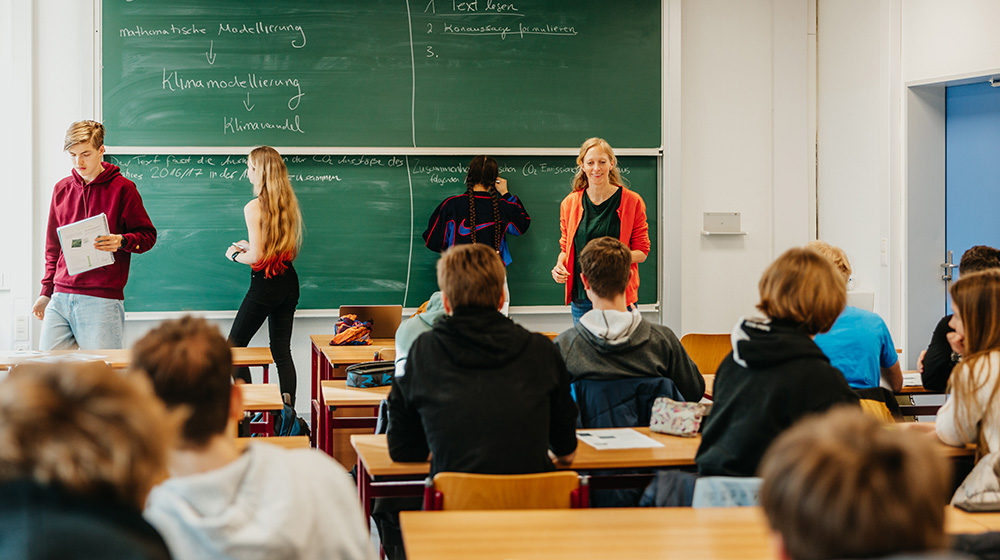
How can you determine your personal CO2 footprint with the help of mathematical models? Dr Carolin Mehlmann, mathematician at the University of Magdeburg, posed this question to sixth form students at an intensive workshop at the University of Magdeburg in February as part of the "Climate Change and Mathematics" theme year project. 54 pupils from grades 8 to 12 from various schools in Saxony-Anhalt developed models in small groups in seminar rooms at the university and then discussed them afterwards.
The idea of a theme year was initiated by Dr Carolin Mehlmann and Dr. Thomas Richter from the Faculty of Mathematics, who are conducting research projects on the topic of sea ice. The idea was very well received in the faculty, so that staff and students from various institutes of the faculty are now organising the themed year of mathematics and climate change, which includes a series of lectures as well as a working group for school pupils. "The aim is to show that maths also plays an important role in climate change, one of the most important topics of the 21st century. The lecture series is intended to show the role of mathematical and scientific research in the description and modelling of climatic processes on the one hand and the importance of mathematics in the development of approaches to combat the consequences of climate change on the other. We hope to raise awareness of the many aspects of this important topic. In particular, we want to appeal to young people and get them excited about mathematics," says Dr Ulf Friedrich, research associate and co-organiser of the theme year.
Dr. Carolin Mehlmann adds: "The application-based teaching increases interest in mathematics and reinforces mathematical concepts from school. The scientific thematisation of the climate and its change enables pupils to participate objectively in discussions and reflect on their personal actions in everyday life."
The topics range from the melting of sea ice and a glacier in an experiment to the prediction of the movement of sea ice floes using a computer model to visualised climate data using a computer. Three classes from the sixth form will be visiting again in March.
The lectures offered as part of the theme year have been particularly well received, especially by young people. However, according to Dr Carolin Mehlmann, the offers in the schools have also been very well received, so that the format of the pupils' working group will also be continued in the second half of the theme year. "We hope to start a regular dialogue with the schools. The AG project is to be integrated into the existing outreach events of the Faculty of Mathematics," says Dr Ulf Friedrich.
An overview of upcoming lectures, information and registration for the Schüler AG can be found at the website of the theme year.
